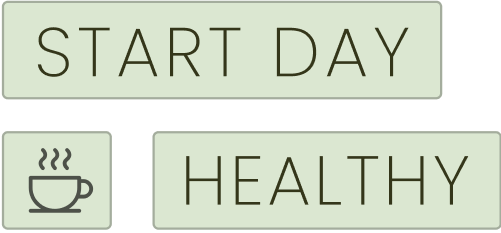As a Muslim dietitian and certified diabetes educator, I want to take a moment to reflect upon what it means to me to “eat healthy” during this holy month.
Much like one must condition their body to properly submit prayers to Allah, nourishing our physical health, I think, is necessary to provide the energy and nutrition we need to strive towards a greater connection with God.

For some of us, it may be tempting to think: ‘It’s Ramadan; I can eat whatever I please since I’m fasting for most of the day!’ While this may be true, making a conscious effort to prioritize nutrient-rich and minimally processed foods – that aren’t laden with sugar and sweeteners – can play a vital role in making us feel our best and supporting our spiritual growth.
For instance, certain sweet foods and desserts will influence how satiated, energized and comfortable you feel. And indulging in fried and overly sugary treats is a potential pathway to feeling lethargic and suffering from digestive issues like bloating and heartburn — all of which can interfere with our spiritual practices.
Similarly, eating excessive added sugar can cause our blood sugar levels to skyrocket, followed by a crash in energy and concentration. Such an imbalance throughout the night may bring on emotions of irritability or mental fog while attempting acts of worship such as prayer.
Nutritious Ramadan Meal Plan
- Predominantly plant-based dietitian-approved & taste-tested recipes
- Grocery list to save you time, money, and fewer trips to the grocery store
- Step-by-step prep guide to make the most of your time in the kitchen
- Full nutritional information
- BONUS: FREE Ebook with 20 Recipes to stay hydrated (worth $60)
For the most part, enjoying healthy Ramadan meals and sweet delights can help in providing us with essential vitamins, minerals, dietary fibre, antioxidants, healthy fats, carbs and protein, all of which are required for our bodies to function optimally.
Food for thought
During Ramadan, it’s essential to practice discipline and mindful eating. At the same time, we can find pleasure in the festive treats – remembering to savour them with moderation and not allowing our preference for indulgences to take away from fulfilling our sacred responsibilities during fasting.
I feel an immense sense of gratitude to Allah for the abundance He has blessed us with, and I believe that when we are engaged in food preparation – cutting, washing, cooking – it’s a perfect opportunity to express our thanks. To me, food is a sacred act, and healthy eating represents an opportunity to bring balance and nourishment into my life – both physically and spiritually.
Ahead, you’ll discover some of my family’s favourite healthy Ramadan desserts that we devour. They’ve been carefully crafted to ensure they are balanced with nutritious ingredients while providing delicious indulgence.
You asked: “How can I satisfy my sweet tooth without sugar?”
In addition to the scrumptious selection of healthy Ramadan desserts listed below, here are a few tips that will help you conquer your sweet tooth cravings.
- Try snacking on dates, figs or prunes, which are both high in fibre and natural sugars.
- Nuts and seeds contain healthy fats and proteins to keep you feeling full for longer.
- Enjoy a piece or two of dark chocolate, which contains natural antioxidants and is low in sugar.
- Fresh fruit is an excellent source of natural sugars, vitamins and minerals – for example, apples, oranges and berries are great choices.
- Make sure to stay hydrated and drink plenty of water, which will help curb cravings.
Diabetes diet tip
Healthy eating during Ramadan when you have type 2 diabetes can feel like a challenge. When it comes to desserts, opt for those that are lower in sugar. Pair your sweets and desserts with other low-carb foods like nuts and seeds, olives and avocado. Monitor your blood sugar closely and talk to your doctor to adjust medication doses, if needed, to stay within target levels.
Key features of healthy sweets and desserts
When selecting or creating your favourite healthy desserts recipes, look out for the following features:
- Natural ingredients instead of refined sugars like white sugar or brown sugar
- Plant-based fats such as coconut oil and olive oil
- Fibre-rich whole grains such as oats, barley, spelt or buckwheat
- Fruits and vegetables for added fibre and vitamins (think applesauce, berries, banana or carrots)
- Spices to enhance flavours without extra added sugar
- Nuts and seeds to add a crunchy texture
- Lower glycemic-index sweetener options such as coconut sugar, pumpkin puree, sweet potato, yacon powder, banana, apple and pear purees
- Unsweetened milks (if using plant-based milk)
15+ Ramadan sweet recipes you’ll love!

Vegan Carrot Halwa (Gajjar Halwa)
Check out this recipe

Kesar Mango Chia Phirni (Pudding)
Check out this recipe

Vegan Falooda Recipe (No Added Sugar!)
Check out this recipe

15-Minute Vegan Coconut Barfi (No Added Sugar!)
Check out this recipe

Zarda (Sweet Rice With Nuts and Coconut)
Check out this recipe

5-Minute Pistachio Apricot Ladoos (No Addedd Sugar!)
Check out this recipe

Super Moist Vegan Chocolate Cake
Check out this recipe

15-Minute Dried Fruit And Nut Laddu Recipe
Check out this recipe

Soft And Crumbly Almond Flour Cookies (Low Carb!)
Check out this recipe

25-minute Quinoa Badam Kheer
Check out this recipe

The Best Vegan Blueberry Cheesecake
Check out this recipe

No-Bake Cranberry Energy Bites
Check out this recipe

10-Minute High Protein Dates And Yogurt Parfaits
Check out this recipe

Oat Peanut Butter Cup Cookies
Check out this recipe

No-Bake Protein Peanut Butter Bars Recipe
Check out this recipe

Baked Oatmeal With Protein Powder (Vegan)
Check out this recipe

15+ Healthy Ramadan Dessert & Sweets: Carrot Halwa
Ingredients
- 1.5 tbsp coconut oil cold-pressed
- 3 carrots extra large, washed, peeled and grated, Benefits of cooked carrots
- ¼ cup cashews plain, unsalted
- ¼ cup sliced almonds plain, unsalted
- 15 green cardamoms from pods, crushed
- ¼ cup raisins plain
- 2⅔ cup oat milk unsweetened
- 4 tsp erythritol
- 2 tbsp coconut flour plain
Instructions
-
Heat coconut oil in a large pan, and add the grated carrots and fry for 5 minutes on medium heat.
-
The carrots will be somewhat softer at this point. Follow with the nuts, raisins, cardamom, oat milk and erythritol. Give it a good stir and bring it to a boil.
-
Reduce the heat to low, cover and cook for at least 45 minutes. Don’t forget to stir several times during this time to make sure the mixture does not stick to the bottom of the pan.
-
Stir in the coconut flour, and continue cooking the carrot halva for 15-20 minutes. Once done, give it a good stir, and finish with slivered almonds – if you fancy even more crunch.
Video
Notes
- Use fresh cardamom instead of ready-made cardamom powder.
- Simmer until the mixture comes together.
- Feel free to reduce the amount of coconut oil and sweetness to suit your needs.
- Store in an airtight container in the fridge for up to 4 days or freeze for up to a month. Defrost in the fridge and heat before serving.
Nutrition
The post Healthy Ramadan Desserts & Sweets: 15+ Recipes appeared first on Shahzadi Devje, Desi~licious RD.

